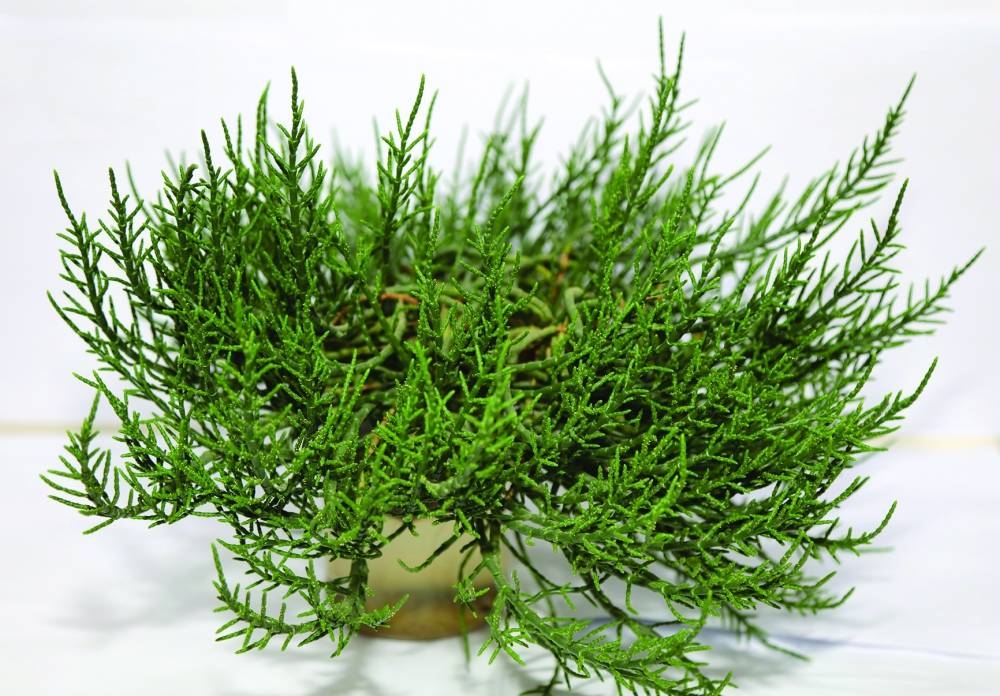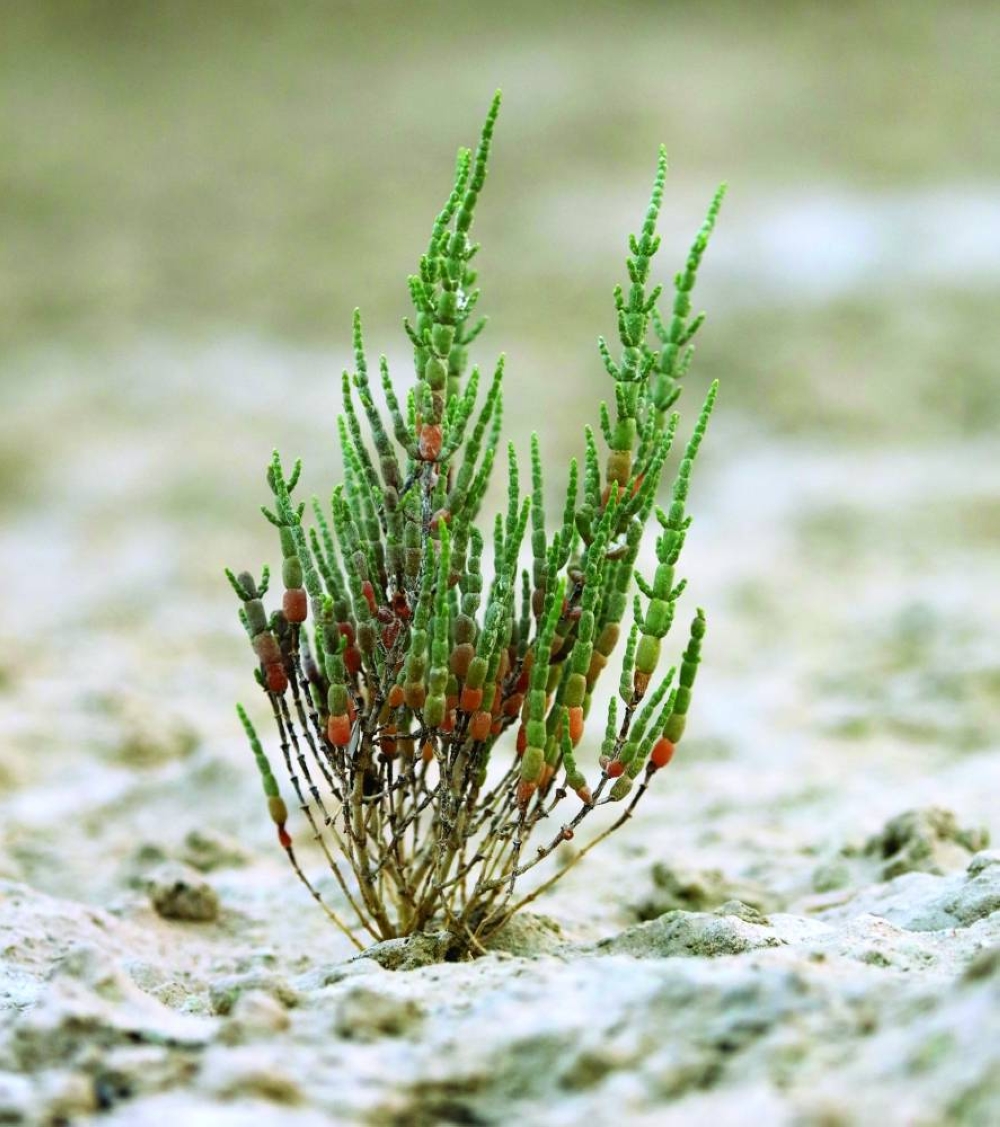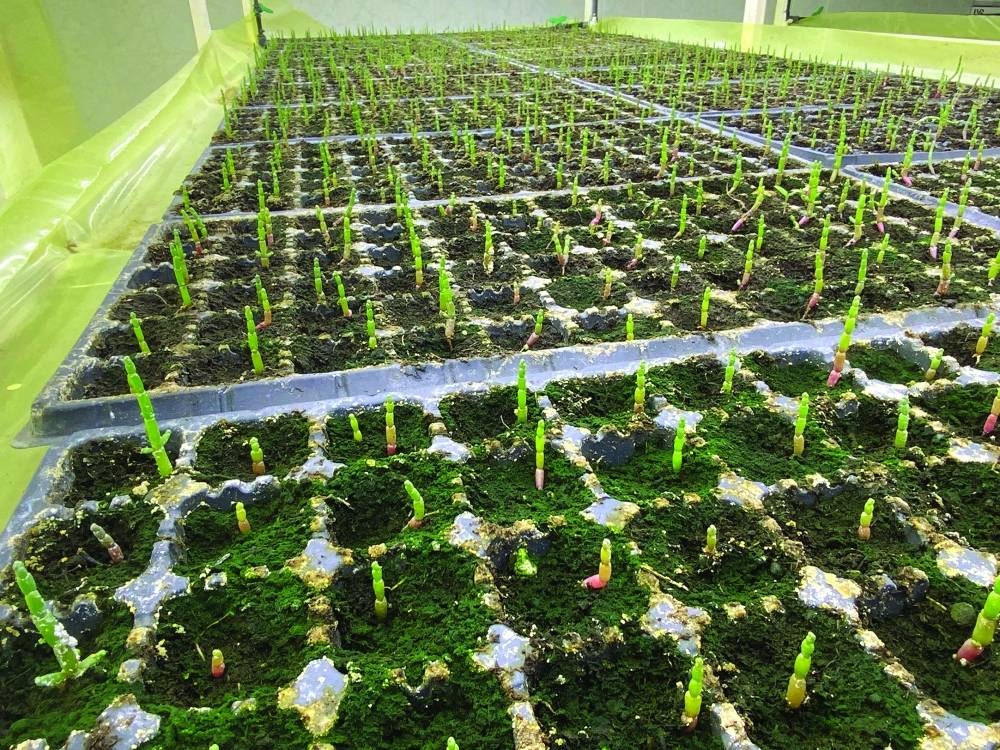The Agricultural Research Department at the Ministry of Municipality has succeeded in developing a unique technique for cultivating the Salicornia europaea plant at the Vegetables and Horticulture Research Station by using the hydroponic system of return water resulting from groundwater desalination.
Director of the Agricultural Research Department Hamad Saket al-Shammari said that Salicornia cultivation is one of the department's promising strategic projects, and aims to solve a problem that exists in many farms in the country.
The plant was cultivated for the second year in a row at the Vegetables and Horticulture Research Station in Al-Utouriya using the hydroponic system, which contributes to solving a major environmental problem through the use of return water resulting from the groundwater desalination process, which represents about 60% of the total treated water.
Aisha Dasmal al-Kuwari from the Agricultural Research Department explained that the Salicornia cultivation experiment comes within the interest of studying and benefiting from most of the wild plants in Qatar, in order to contribute to achieving food security and environmental sustainability of genetic resources; noting that Salicornia is characterised by its ability to adapt and grow in difficult environments, and it is a plant of high economic value and is exploited in many agricultural and food uses.
Dr Al Sayed al-Azazy, an expert in biotechnology and genetic resources, noted that Salicornia europaea is a wild plant that grows in Qatar on saline water which salinity exceeds 40,000 parts per million. The plant contains oil levels of about 30% of its total weight, making it ideal as a useful crop for animal feed.
Salicornia seed oil is rich in protein, tasty and cholesterol-free, similar to olive oil. Salicornia is also characterised by the ability to produce large amounts of protein, amounts to more than 10% of the plant's dry weight.
Salicornia is of great economic importance and one of the valuable crops because of its ability to withstand harsh conditions and its high growth performance using the return water from desalination plants.
The plant has many food and agricultural uses, and can be used in some diets or as a substitute for mineral salts. It can also be used in the production of some fodder or nutritional supplements for animals, and contributes to solving a major problem when used to fortify animal feed, as it provides a percentage of the salts the animal needs that is not found in other sources.
Moreover, Salicornia has an important role in heavy industries, as it is used in the manufacture of paper and cardboard in many countries. The ash of the plant is rich in potassium which is used in the manufacture of fertilisers. It also contains soda that is used in the manufacture of soap, making it versatile and can be exploited in a wide range of agricultural and industrial uses.
The green agriculture of Salicornia represents a promising future to contribute to achieving environmental sustainability and food security.
Qatar
Qatar cultivates a 'high value' wild plant by a unique technique
Agricultural Research Department grow Salicornia europaea using hydroponic system of return water



